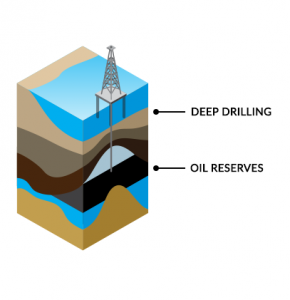All Categories
Featured
Table of Contents
Geophysical Survey: Plotting Buried Traces Of Human Activity in Greenmount Western Australia 2023
This work is progressively contracted out, so consultancies provide another source of work. Consultancy companies vary in size, from very small companies to big multinationals. Some consultancies are quite specialised in utilizing particular geophysical strategies or operating in particular locations, while others provide a more varied variety of services to their consumers.
The extraction of gas from land fill websites is another location of work and this may grow in the future. Exploration business may carry out work for building and construction firms, public utility, mining business and environmental companies, so geophysicists may be employed in any of these settings. Other companies consist of: geological surveysgovernment bodies and agenciesuniversities and research institutes.


Jobs might be listed in the oil and gas sector press. Recruitment is affected by oil price changes and the level of competitors for positions varies depending on this. Professions Days, which cover the full variety of geoscience careers and are normally participated in by a number of crucial industry companies, are run by The Geological Society.
What Is Geophysics? in North Fremantle Oz 2022
Some of the large oil and gas business use a complete two-year structured training program throughout the breadth of geophysics, consisting of the chance to experience work in different groups before specialising in one area. Your training may include deal with: existing wellsmagnetic and gravitational possible field information analysisresearchrock analysis. It's more usual for your preliminary training to be supplied on the job.

There may be a probationary period throughout which you work together with an experienced coworker. Competency-based appraisals happen frequently in many companies. In smaller sized companies, and for academic posts, there is unlikely to be any formal training - you'll be expected to begin work straightaway and get abilities as you go along.
If you work for a smaller sized business, you may find that you need to take responsibility for organizing and funding your own advancement and training. If you have a geology degree, membership of The Geological Society can be useful for networking and for maintaining to date with the market.
What Are Geophysical Surveys & Why Do They Matter in Mosman Park Western Australia 2022
You might likewise discover it useful to join the PESGB (The Petroleum Exploration Society of Great Britain, which has a geophysics unique interest group. After a probationary duration, and when you've gained some experience, you might progress to senior geophysicist, then group leader and then into a senior role in management.
The ease of movement in between functions depends upon the company structure. Study at Masters or Ph, D level in a subject related to geophysics or geosciences might assist with your profession development and progression. The work market within the oil and gas market is extremely based on rate and this may affect your chances for career development.
Not all jobs are dependent on the oil and gas markets. For experienced geophysicists, freelance consultancy provides a good route for profession development. You can also specialise in a particular location of geophysics. As a geophysicist, you're likely to have numerous jobs throughout your working life. International movement is vital for dealing with peaks and troughs in various nations at different times.
Airborne Geophysical Surveys in Currambine Western Australia 2023
From geophysics, it's possible to concentrate on seismology (completing more training to end up being a seismic interpreter) or to move into associated locations such as engineering geology or danger prediction.
Choosing what to study in college is a difficult choice. Even if you understand that your field of interest lies in science, what program of research study is right for you?
The first action to achieving your objective of becoming a geophysicist is making a degree. Even for entry-level positions in the field of geoscience, you'll require a bachelor's degree (a geophysicist college degree) from an accredited college or university. Geophysicists need to be able to: evaluate rocks, photos, and other pieces of information conduct research study both in the field and in laboratories develop maps and charts of their findings write reports To accomplish all this, students need a specialized education for geophysicist careers.
As stated above, you'll require a bachelor's degree in geoscience or a related discipline, such as a physical science or a natural science, to land an entry-level task. Students can also prepare by majoring in topics like: Biology Chemistry Computer system science Engineering Mathematics Physics The above geophysicist majors provide a more generalized method to a single scientific discipline, however the majority of programs require students to take one or more geology course.
Latest Posts
Geophysical Survey in Jandakot Australia 2020
Geophysics Definition & Meaning in Roleystone Oz 2021
Geophysical Survey - Explore The Seafloor in Kinross WA 2021